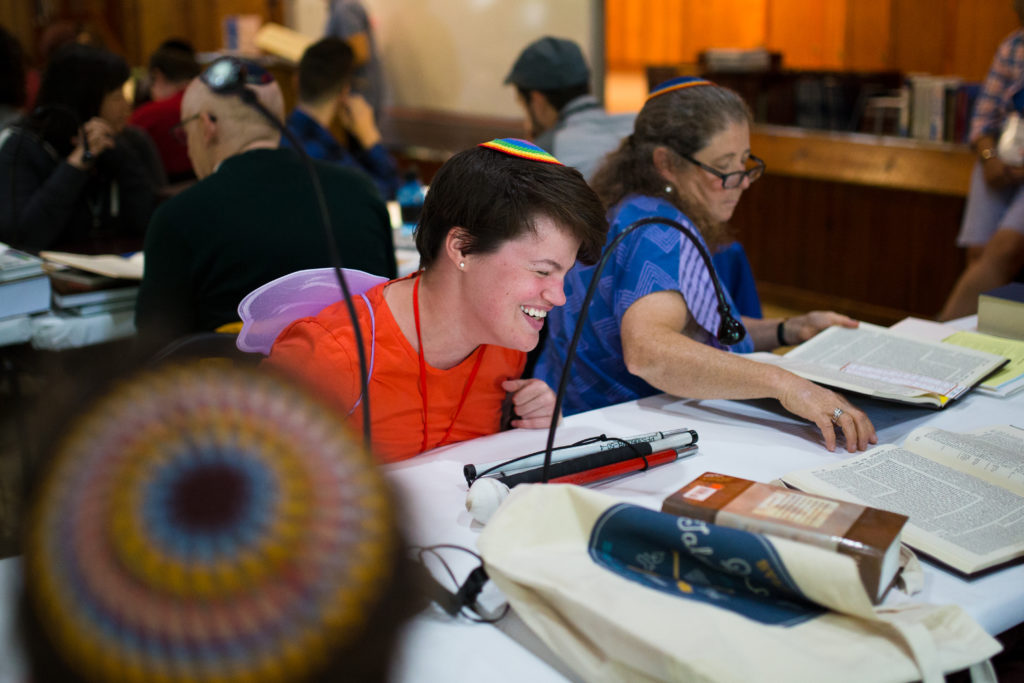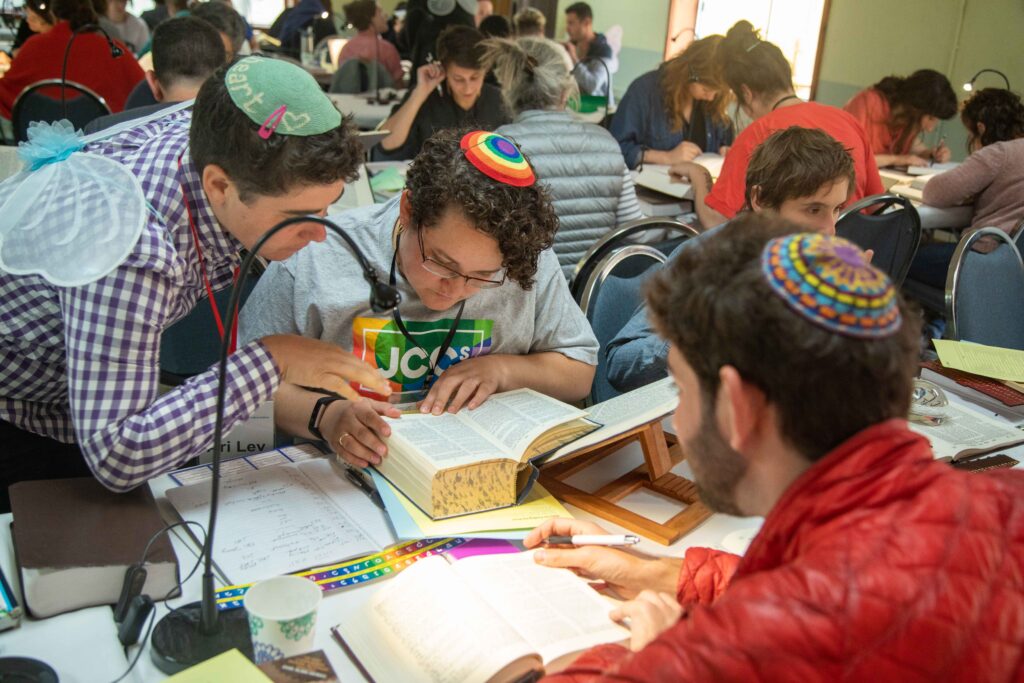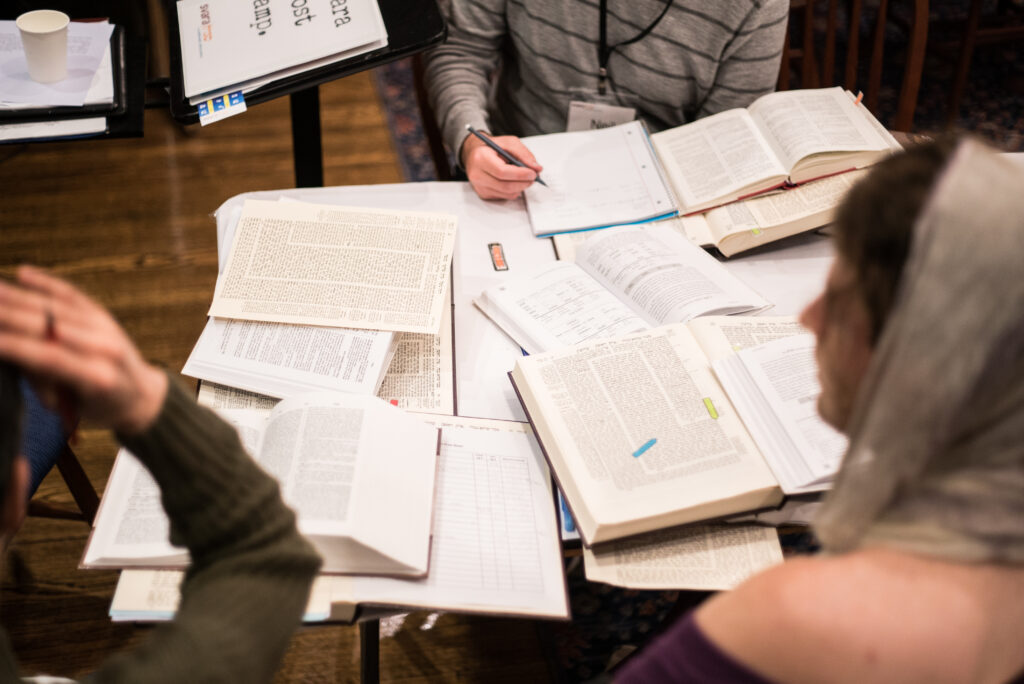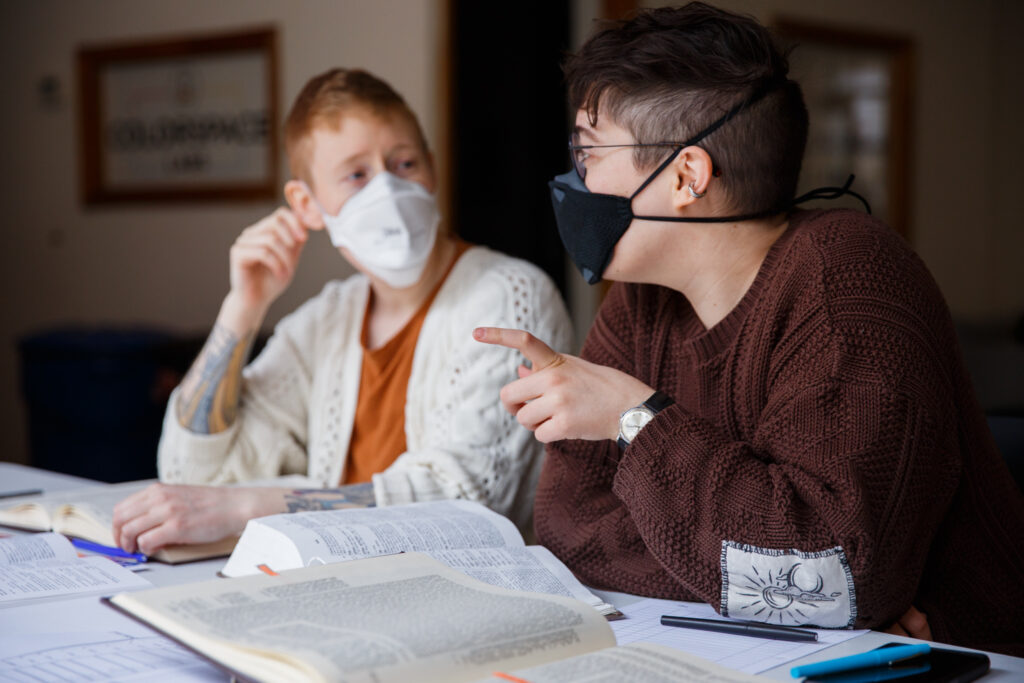This time next week, SVARA’s daily drop-in Mishnah Collective will be completing its exploration of Pirkei Avot. I began coordinating the Mishnah Collective in August 2020, and when I started I had no idea just how much this program would change me. It has been an ongoing space of healing and respite as the world has continued to mourn innumerable tragedies over the last two years, and I am endlessly grateful for everything this learning space has offered our community. Perhaps what is most incredible about Mishnah Collective is you, the folks who show up whenever and however you can. It’s the way y’all embody the text and how you reflect the lessons in the very process of your learning. I see this embodiment made evident in your living out of two specific quotes from Avot:
שֶׁאֵין לְךָ בֶן חוֹרִין אֶלָּא מִי שֶׁעוֹסֵק בְּתַלְמוּד תּוֹרָה
For there is no free person, except for one who engages with the study of Torah. (Avot 6:2)
We’ve spent a lot of time at Mishnah Collective mulling over what exactly it means to be “free”, and how to define “Torah” expansively. Beyond just reading the scroll, studying Torah requires taking time to reflect on how to be in right relationship with ourselves, with other people, and with the world. It is a lifelong process of inching our way toward olam habah and collective liberation.
I’ve loved this incredible journey, made all the more dynamic by the relational care that participants and teachers bring to the space day in and day out. Coordinating a program entails many things, one of the most stressful of which can be supporting folks through moments of hurt, conflict, or misalignment. The care SVARA-niks have for one another doesn’t mean that conflict never arises—far from it. What has been so astounding to me is the inevitable “ouch-oops” moment in the chat, and before I can even finish writing a comment to help mediate, participants have already honestly expressed their hurt and received a reflective, loving apology. While this is perhaps not always the case, the consistency with which I see so many participants dedicated to staying in candid, vulnerable learning relationships with one another is inspiring. My relationship to conflict has fundamentally changed for the better after witnessing yinz’s example.
As I’ve navigated my own messy relationship to chronic pain and illness, it has been crucially healing to see the way in which disabled and neuro-atypical participants show up for themselves. I am incredibly proud of the work we’ve done at Mishnah Collective to keep accessibility an emergent and ongoing process, and none of it would’ve been possible if it weren’t for your vulnerability and honesty. The entire yeshiva has been transformed because of you. Yinz bring a consistent ethos of “I’m here, I’m not going anywhere, so let’s figure this out together.” Your example has helped me advocate for myself, even when I’m unsure of what answer I’ll receive. If you have ever reached out to us with information about how we can better show up for you, thank you for making us all a little more free.
אִם אֵין קֶמַח אֵין תּוֹרָה אִם אֵין תּוֹרָה אֵין קֶמַח
If there is no flour, there is no Torah. If there is no Torah, there is no flour.
(Avot 3:17)
This is, without a doubt, my favorite quote from Avot and perhaps from all of Mishnah. I often wear a necklace with an amulet of this quote (made by Mishnah Collective’s very own Ori Clemons!) when teaching. As other SVARA-niks pointed out, it’s the rabbinic “bread and roses.” The often overlooked originator of this phrase, Rose Schneiderman, was a Jewish textile worker, socialist, and labor activist who said, “The woman worker needs bread, but she needs roses too.” It was incredibly powerful to see this concept—the very base of all I believe in—as a through-line across almost 2000 years of Judaism (the flour/flower pun here is an especially fun bonus)!
For all the serious contemplation that happens at Mishnah Collective, one (if not the) defining factor of Mishnah Collective is joy. If there is an innuendo to be made about a text, you make it. Typos become multi-session jokes, which somehow find themselves incorporated into your teachings (#ShirtHat). Yinz bring your full, queer, goofy selves to your learning—and Baruch Hashem for that! Whatever topics surface in daily life (from Jiu Jitsu to kabbalah to particle physics), you seamlessly weave it into Talmud study. Your flour is your torah, and your torah is your flour.
I mention it like a broken record, but the best summary of Mishnah Collective’s culture is the “chevrutah love” that fills the chat when participants return from breakout rooms. There was never instruction to thank your learning partner, it was just an immediate and instinctual norm that formed. We can’t be our full selves in spaces where basic communal needs aren’t met, and we can’t meet basic communal needs without being our full selves. Thank you for over two years of equal parts kemach and Torah—the wisdom yinz have generated has forever shaped Pirkei Avot.







